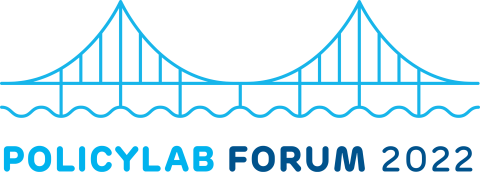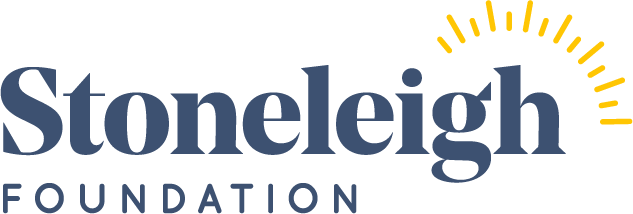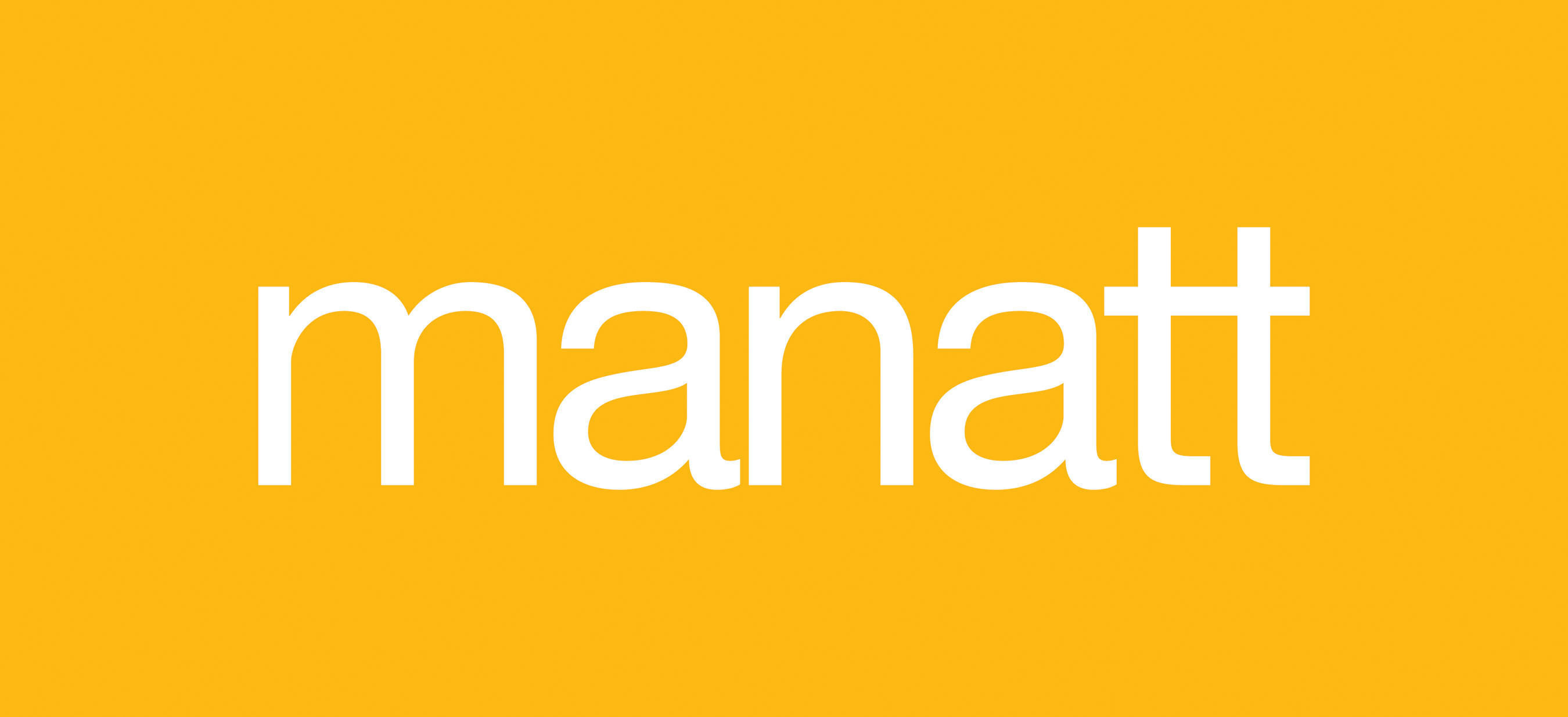
PolicyLab Forum 2022 has ended, but you can still engage with the event highlights on Twitter and LinkedIn by following the hashtag #PolicyLabForum2022!
For the past 13 years, PolicyLab has been steadfast in working toward its mission to achieve optimal child health and well-being by informing program and policy changes through interdisciplinary research. Knowing collaboration is essential to attaining improved child health outcomes, we partnered with AcademyHealth to host a forum under the theme, “Bridging New Partnerships, Creating Change,” which convened leaders in children’s health for a local and national look at how we can bridge research, policy, and practice to address the most pressing issues facing youth and their families.
PolicyLab Forum 2022 was held in person May 9-10, 2022, at the world-renowned Kimmel Center for the Performing Arts in Philadelphia. We were joined by nearly 250 attendees, representing policymakers, program developers, child health advocates, researchers, public health professionals, providers and education leaders who came from 16 states and Washington, D.C.
Throughout the day and a half, we heard from panels of experts who specialize in important and timely children’s health topics such as the youth behavioral health crisis, caregiver well-being, addressing social needs in pediatric settings, underinsurance among children and families, services to support immigrant family health, and more. These presentations led to in-depth conversations centered around how we can collaborate to propel forward innovative solutions that improve child and family health.
The forum also included meaningful networking opportunities, such as an evening reception during which PolicyLab awarded “Outstanding Youth Awards” to three inspiring youth making a difference in our community and a “Bridging New Partners Showcase,” through which we highlighted the work of community-focused programs and projects that attendees have been engaged in.
Get a more in-depth look into PolicyLab Forum 2022 by reading our event wrap-up blog post and by viewing our recap video below.
Cross-sector Partnerships to Support Schools in COVID-19 Recovery and Beyond: The Vision from Education Leaders
Background:
Every school community in the U.S. has faced innumerable challenges during the COVID-19 pandemic to both protecting the health and safety of their students and ensuring adequate educational instruction. The experiences of individual schools, though, have varied based on community transmission rates, infrastructure of buildings, acceptance of mitigation strategies, funding for testing and relationships with trusted public health officials. In this session, school leaders—representing geographically and demographically different school districts and bodies—discussed the evidence-based programs for school-based health that they employed during the pandemic and the partnerships needed between the health and education sectors to sustain and replicate these programs for long-term support for children and families.
Learning Objectives:
- Showcase the visions of education leaders representing diverse school communities for how we can support and deliver for children and families through COVID-19 recovery and beyond
- Identify cross-sector partnerships necessary to support education leaders in achieving these visions and how to effectively build them for longevity
- Discuss effective ways to replicate evidence-based programs for school-based health in a sustainable way
Related PolicyLab Resources:
A Look Forward on School Mental and Behavioral Health Services
Background:
The K-12 school setting is increasingly recognized as a critical setting for children and youth to receive effective mental health services. Behavioral and mental health (behavioral health) services in schools are accessible, making them an important tool for advancing equity, and naturalistic, since schools are where children spend much of their time. School behavioral health services involve many complex systems and stakeholders. The goal of providing effective behavioral health services in schools across the continuum of care presents a number of challenges, from forming effective partnerships to funding services to sustainability.
School districts, states, and advocacy organizations have made tremendous strides toward the goal of providing effective, sustainable behavioral health services integrated within K-12 schools. Through this work, they have learned lessons about partnerships and policy levers that we can all benefit from. In addition, researchers, including those at PolicyLab, have developed and evaluated school-based interventions and continue to explore how to best deliver these evidence-based programs within schools and alongside educators. Across these different perspectives, there is interest in advancing the discussion on how to finance, sustain, and evaluate school-based behavioral health services through payment reform and greater cross-sector partnerships.
The goal of this session was to showcase communities that demonstrate innovations related to mental health service planning, delivery, and funding in K-12 schools, and identify future policy levers for sustainability.
Learning Objectives:
- Participants will learn about different models and partnerships for delivering school-based behavioral health services.
- Participants will be aware of innovative payment strategies that can support and sustain school-based behavioral health services
- Participants will be able to describe opportunities for coordination and advocacy to support state-level policy change to enhance school-based behavioral health services.
Related PolicyLab Resources:
- Building and Sustaining Programs for School-based Behavioral Health Services in K-12 Schools
- School Adolescent Mood Project: Examining the Effects of an Evidence-based Depression Prevention Program in Schools
- Supporting Implementation of Behavioral Classroom Interventions for Children with ADHD in Urban Schools
- U.S. Senate Committee on Finance’s Request for Information: Policy Proposals to Address Unmet Mental Health Needs
Breaking Down Silos for Sensitive Data that Supports the Health of Children and Families
Background:
Sharing of sensitive child health data across siloed data systems is essential to foster communication and collaborative efforts to improve child health. In this breakout session, we examined ways that physical and mental health and education data are collected, managed, and analyzed. We discussed challenges to sharing sensitive data across systems of care, but also why it is necessary to collaboratively promoting health equity for children and families in a post-pandemic world.
Learning Objectives:
- Learn how sensitive data has been shared across governmental agencies to promote the health and wellbeing of children and families
- Consider challenges in sharing sensitive data across governmental agencies and community organizations
- Identify solutions to data sharing challenges to improve child and family health
Related PolicyLab Resources:
The Power of Youth Voice in Creating Change
Background:
This session highlighted how youth voice is impacting policy decisions across communities, and how researchers, health care providers, and education leaders can engage youth to effectively deliver needed health services, particularly around sexual and reproductive health and sexuality education. Comprehensive sex education and access to quality reproductive health services have broad, long-lasting benefits for young people’s physical and mental health. Youth activists are learning about policymaking, organizing, and using their voices to advocate for comprehensive sex education and services. During the session, audience members heard from a diverse panel of experts, both youth and professionals, speaking about their experiences engaging in advocacy and policy, developing programs and coalitions, and the overall impact of youth voice.
Learning Objectives:
- Describe the current landscape of youth involvement in sexual and reproductive health policy and sexuality education development and reform.
- Recognize the benefits of youth partnerships and incorporating youth voice into research, policy, and practice.
Related PolicyLab Resources:
- Health Education in Schools: How Can We Ensure It Is Accurate, Comprehensive and Inclusive?
- Understanding the Barries and Facilitators to Adolescent Menstrual Health Equity
- Utilizing Expedited Partner Therapy (EPT) to Support Pennsylvania Youth's Sexual Health
- Ensuring a Policy Environment Supportive of Gender-affirming Care for Youth
- Addressing the Mental Health Needs of Parenting Teens
- Caring for the Caregiver: Addressing the Mental Health Needs of Teen Parents
- Supporting Young Parents with System Involvement: A Conversation with Juvenile Law Center Advocates
- Reflecting on World AIDS Day 2021: What Happens When Pandemics Collide?
Other Related Resources:
Addressing the Crisis of Underinsurance for Children and Families
This session focused on underinsurance, a growing phenomenon in which health insurance coverage fails to provide consistent or affordable access to appropriate health care services. Panelists examined how underinsurance affects children and families, while also discussing strategies and solutions to address underinsurance and the rising cost of health care coverage for both families and employers. The moderated discussion explored the perspectives of state policymakers, employers, and researchers to better understand the current crisis of underinsurance faced by children and families with employer-based insurance, the consequences of this crisis, and what can be done to address it. It centered on opportunities for state policy innovation to improve access to affordable and comprehensive health coverage for all children.
Learning objectives:
- To better understand the implications of underinsurance for children and families, including the ability to access necessary care and the out-of-pocket costs that families pay in addition to health insurance premiums
- To explore solutions, primarily state-based, to address underinsurance for children and families and reduce the cost burden to employers of providing robust health insurance benefits, including to employees’ dependents
Related PolicyLab Resources:
Approaches to Alleviating Poverty and Improving Child Health
Background:
In this session, we discussed upstream policy approaches to alleviating poverty and its impact on child health. The discussion examined both implementation of novel poverty alleviation programs, like the expanded child tax credit and other direct income support interventions, and strategies for strengthening existing poverty alleviation programs, including by reducing administrative burdens that serve as barriers to uptake and utilization.
Learning Objectives:
- Describe the promise and pitfalls of current government benefit programs aimed at alleviating child poverty and mitigating its impacts on child health
- Define administrative burden and describe how these burdens can both reinforce and be shaped by social inequality
- Discuss innovative income support policies like the expanded child tax credit, their role in influencing intergenerational poverty and improving child health and well-being, and the future of such policies in the United States
Related PolicyLab Resources:
- The Temporary Expansion of the Child Tax Credit Should Become to Permanent to Help Philly's Families
- Modernizing WIC Enrollment to Improve Access to Healthy Food for Children and Families
- Complete Eats: The USDA Summer Food Service Program at CHOP
- Complete Eats: Summer Meals Offered by the Emergency Department for Food Insecurity
Integrative Behavioral Health Models to Increase Access for Children and Adolescents
Background:
All children and youth experience emotional and behavioral challenges. Most can cope but others need support. In 2021, the US Surgeon General issued an advisory on the youth mental health crisis, reporting that nearly 20% of our youth (ages 3-17) have mental, emotional, developmental, or behavioral disorders. Sound the Alarm for Kids, is a national campaign bringing together organizations including children’s hospitals from across the country to call on Congress to act. The mental health crisis is a national emergency. Notably, only about half of the children with treatable illnesses receive adequate treatment. Health care and communities are working together to try solutions that improve access, including integrated behavioral health models. These solutions look to address factors that contribute to poor behavioral health care access, such as cost, location, and convenience as well as the guarded willingness of children and families to engage in care due to fear of stigma, lack of trust in treatment and lack of hope. These solutions can also be organized around different provider types. This session explored innovative models of behavioral health care and the important policy levers to equitably fund and increase access to child-focused behavioral health services and the partnerships that support the development and implementation of these policies.
Learning Objectives:
- Participants will be aware of integrated behavioral health models that increase access to behavioral health services
- Participants will identify innovative ways that payment strategies have been used to support access
- Participants will describe partnerships and metrics needed to sustain and disseminate integrated behavioral health models
Related PolicyLab Resources:
- Strategic Implementation Planning for Integrated Behavioral Health Services in Pediatric Primary Care
- Exploring Predictors of Treatment Engagement in Urban Integrated Primary Care
- Reducing Disparities in Behavioral Health Treatment for Children With ADHD in Primary Care
- Breaking the Stigma: Delivering ADHD Treatment Within Primary Care
Addressing Social Needs in Pediatric Settings
Background:
Children are disproportionally impacted by poverty and its associated social risk, such as food insecurity, utility insecurity, and unsafe or unstable housing. Early and prolonged exposures to these social risk factors lead to increased hospitalizations, poor overall health, and worse outcomes in chronic conditions, increasing the odds of lifelong health problems. The effects of poverty on child health have been exacerbated by the COVID-19 pandemic and concurrent economic recession, magnifying the urgency for pediatric healthcare institutions to partner with community-based organizations, policymakers, and payers to effectively and sustainably address patients’ unmet social needs.
While there has been rapid growth of screening protocols to identify social risk and family-prioritized areas of need, little is known about how to integrate, finance, and document family-centered and effective interventions aimed at addressing these needs. Researchers at PolicyLab and throughout the nation have been diligently developing and studying interventions to help improve social care integration into medical care and advocating for implementation of family-centered and evidence-based interventions. This session explored some of the key issues around providing meaningful social care interventions within pediatric health systems, including establishing partnerships and leveraging expertise within the community; creating gradations of support for families; cost analysis and establishing sustainable funding streams; and the “how” of integrating social care for kids, not only within a single institution but at a state level. Our goal was to ensure that participants in this session not only learn about effective strategies taken by our panelists, but also come away with concrete steps can be applied within their own systems.
Learning Objectives:
At the end of this session, participants will be able to:
- Describe the role of healthcare in addressing unmet social need
- Recognize the importance of cross-sector collaboration and leveraging the expertise of partners in this work
- Understand the potential benefit and challenges of current healthcare-based interventions to address unmet social need
- Identify areas for policy and payer involvement to advance the integration of social care into healthcare
Related PolicyLab Resources:
- Community Resource Connects
- Community Resource Connection for Pediatric Caregivers with Unmet Social Needs: A Qualitative Study
- State Policy Considerations for Addressing Unmet Social Needs in the Pediatric Setting
- Pediatric Social Risk Screening: Leveraging Research to Ensure Equity
- Food for Thought: An Evaluation of Food Insecurity Screening Methods and Location
- Screening for Social Needs in Pediatrics: How Can We Ensure it is Family-centered and Effective?
Protecting Immigrant Family Health Through Access to Public Services
Background:
This breakout session highlighted the challenges immigrant communities face in accessing public benefit programs vital for children’s health, and how to overcome those challenges through policy, research, and practice. The panel of policy, legal, and research experts discussed how best to study and overcome barriers related to language, mistrust, eligibility for and access to health services and coverage, and how policy change at the federal, state, and local levels can support these aims.
Learning Objectives:
- Participants will learn about the unique challenges faced by immigrant families in accessing vital public services
- Participants will learn about current policymaking efforts at various levels of government, and about innovative solutions to improve access to benefits
- Participants will learn about how research has or can inform policy efforts, as well as research gaps and opportunities for further study
Related PolicyLab Resources:
- Addressing the Unique Needs of Immigrant and Limited-English-Proficient Communities During the COVID-19 Pandemic
- Providing Tools for Clinicians to Better Support Immigrant Health
- Department of Homeland Security's Request for Comment: Public Charge Ground of Inadmissibility
- Understanding the Impacts of Sanctuary Immigration Policies on Latinx Population Health
A Caregiving Agenda that Delivers for Children and Families
Background:
The COVID-19 pandemic has exposed and exacerbated longstanding structural barriers to caregiving for infants and young children in the United States. While many challenges are universal, caregivers with low incomes face pronounced and complex difficulty in accessing programs and resources needed to support the health and financial well-being of their families. This session explored the impact that economic and workplace support policies have on caregiver health and, in turn, child health and well-being, including postpartum Medicaid coverage, the child tax credit, paid family leave, and accessible child care. The expert panel of researchers, advocates, and policy and program developers also reviewed the landscape of maternal, infant, and early childhood health disparities and the policies most poised to promote health equity among these populations.
Learning Objectives:
- Participants will be aware of the impact that economic and workplace support policies have on caregiver health and in turn, child health and well-being.
- Participants will be aware of key policies that support caregiver and child health and well-being including post-partum Medicaid coverage, child tax credit, paid family leave, paid time off and accessible childcare.
- Participants will understand the landscape of maternal, infant and early childhood health disparities and the policies most poised to promote equity.
- Participants will identify what steps are needed to have strong policies in place for caregivers.
Related PolicyLab Resources:
- Intergenerational Family Services in Pediatric Settings: A Snapshot of a Research Portfolio
- A Caregiving Agenda is Long Overdue
- Policy Considerations to Ensure Accessible and Quality Child Care
- The Child Care Crisis: Partnering with Health Care to Build a Stronger System
- Paid Leave: Will COVID-19 be a Catalyst for This Essential Policy?
- We Know Paid Family Leave Saves Infant Lives—So When Will Policymakers Catch Up?
- The Impact of Paid Leave on School Functioning During COVID-19
Levers for Supporting Equitable Maternal Mental Health Care
Background:
As many as 1 in 8 individuals who have given birth suffer from depression in the postpartum period. Untreated postpartum depression drives health disparities and, in addition to affecting the health of the parent, if gone untreated can negatively affect a child’s development and mental health. Evidence-based treatments exist, but too few individuals who give birth can access care, particularly people of color. This session touched on the barriers to access and explore the current state of knowledge on health disparities in perinatal mental health and the levers available to improve them. Panelists pulled from their experience as researchers, clinicians, and policymakers to discuss programs, interventions, and policies that can offer solutions to improve perinatal mental health and health equity.
Related PolicyLab Resources:
- Addressing Postpartum Depression in Pediatric Settings
- Helping Depressed Parents and Caregivers
- Pilot RCT of a Social Media Parenting Intervention for Postpartum Mothers with Depression Symptoms
- Mothers' Mental Health Care Utilization After Screening for Postpartum Depression at Well Child Visits
- Most Moms on Medicaid Who Screen Positive for Depression Don’t Get Follow-up Care
- Exploring How Mothers and Infants Use Preventive Care in Adult and Pediatric Settings
- Addressing the Mental Health Needs of Parenting Teens
- The Importance of Extending Postpartum Medicaid Coverage in 200 Words
Innovative Policy and Community Care Models to Support Caregivers with Substance Use Disorders
Background:
Substance Use Disorder, including Opioid Use Disorder (OUD), is a growing problem influencing all corners of society. We are currently experiencing 70,000 opioid-related deaths per year. Opioid use is also increasing in pregnancy and parenting. According to the Centers for Disease Control and Prevention (CDC), approximately 7 in 100 pregnant women use opioids and 7 in 1,000 neonates experience symptoms related to prenatal opioid exposure.
Despite the large numbers of pregnant and parenting people with OUD or who are in recovery, many programs for new parents lack capacity to address OUD while many programs to support recovery do not address positive parenting or harm reduction at the parent-child dyad level. One challenge to addressing the opioid crisis is stigma. Stigma around substance may lead to hesitation to adopt or access evidence-based harm reduction strategies such as free naloxone, needle exchanges, or, most recently, supervised injection sites. This stigma is exacerbated for parents when faced with perceptions of “good parent” behaviors, and is further complicated by intersectional mandates related to child welfare, which may be particularly poignant for non-white families.
This panel highlighted experienced programs serving families with substance use disorder to shed light on payment and policy issues that currently influence availability of high-quality support for families affected by OUD. Panelists reflected on how these programs have been developed and supported, lessons on sustaining programs, and what resources or connections are needed for programs to reach their full potential and meet the large community need.
Learning Objectives:
- Understand the connections between caregiver and infant / child health for families affected by substance use disorder.
- Describe best practices to promote health and development at the dyad level for parent-infant dyads affected by substance use disorder.
- Describe policy and payment structures that influence the ability to provide high quality care to this population.
Related PolicyLab Resources:
- Young Child and Parent Project: Improving the Well-being and Safety of Families with Parental Substance Abuse
- Evaluating Implementation of the Families in Recovery Program
- Exploring How Mothers and Infants Use Preventive Care in Adult and Pediatric Settings
- Addressing Opioid Use in Pregnant and Postpartum People
Focusing on Prevention to Increase Family Well-being
Background:
Families across the country are under additional stress as we continue to grapple with the COVID-19 pandemic and the ongoing pediatric behavioral health crisis. As a community of professionals who care about the well-being of families, it is our aim to support families and advocate for systems that prevent poverty and inequities – fostering an environment that sets children up for future success and cultivates nurturing, resilient families.
This breakout session considered how evidence-based programs and community partnerships can best support families during early childhood—when children undergo a period of unparalleled growth and their daily experiences can dramatically influence brain development, social-emotional and cognitive skills—as well as future health and success both in school and life.
At PolicyLab, our commitment to advancing evidence-based prevention programs is central with ongoing research and policy projects related to food access, home visiting, early literacy promotion, positive parenting, early childhood centers, and more. A critical challenge that often presents itself in this space is how to sustainably fund programs, ensure quality, as well as coordinate efforts to best support families without creating additional silos of care.
This breakout session dived into the role we as researchers, policymakers, community members, and medical providers can play in advancing family well-being through these critical preventive measures during a child’s earliest years of life.
Learning Objectives:
- Understanding the intersection of child welfare and evidence-based prevention community programs
- Understand how an overemphasis on child welfare can have an unintended negative consequence on family well-being.
- Recognize the role different stakeholders can play in supporting equity and implementing quality, community-based prevention programs including local non-profits, education, government, managed care organizations, and health systems
- Discern the research-base that exists (or is needed) and leverage this knowledge to enhance your work and advocacy.
Related PolicyLab Resources:
- Positive Parenting Program to Improve Problem Behaviors in Preschool-age Children (PRICARE)
- Improving Child Behaviors and Parental Stress: A Randomized Trial of Child Adult Relationship Enhancement in Primary Care
- Community Clinical Systems Integration Initiative – Home Visiting
- Meeting Families Where They Are: Child Care Navigation Supports Through Primary Care
What’s on the Horizon for Federal Children’s Health Policy?
Background:
This closing plenary session of the PolicyLab Forum brought together experts in health policy and politics to offer a “view from DC” on what’s on the horizon for children’s health policy. The group explored risks and opportunities on issues such as children’s health coverage, behavioral health, the end of the COVID-19 Public Health Emergency and its associated policies, and prospects for child health-related components of Build Back Better. Bringing different perspectives from their experiences on Capitol Hill and in the White House, in consulting, and in academia, this panel—moderated by a renowned national health policy reporter—reviewed strategies for prioritizing children’s health issues in today’s Congress.
Learning Objectives:
- To better understand opportunities or roadblocks to federal action on issues related to children’s health.
- To hear from DC insiders on strategies that are being pursued to prioritize children’s health issues in Congress.
- To leave Forum attendees with a realistic outlook on national health policy priorities for children and actions we can take in support
Related PolicyLab Resources:
- 4 Ways Governments Can Help Improve the Health of Children and Families
- The Temporary Expansion of the Child Tax Credit Should Become Permanent to Help Philly’s Families
- Leveraging Health Care Reform To Address Underinsurance In Working Families
- A Caregiving Agenda is Long Overdue
- Policy Considerations to Ensure Accessible and Quality Child Care
- The Child Care Crisis: Partnering with Health Care to Build a Stronger System
Forum Supporters
We’d like to sincerely thank all of our incredible supporters of PolicyLab Forum 2022!













